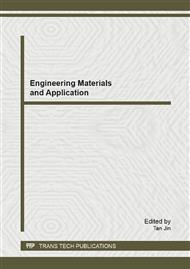p.922
p.926
p.931
p.937
p.943
p.949
p.955
p.961
p.967
Constrained Epistemic Extension on Agent Knowledge Acquisition
Abstract:
In multi-agent systems, a number of autonomous pieces of software (the agents) interact in order to execute complex tasks. This paper proposes a logic framework portrays agent’s communication protocols in the multi-agent systems and a dynamic negotiation model based on epistemic default logic was introduced in this framework. In this paper, we use the constrained default rules to investigate the extension of dynamic epistemic logic, and constrained epistemic extension construct an efficient negotiation strategy via constrained epistemic default reasoning, which guarantees the important natures of extension existence and semi-monotonicity. We also specify characteristic of the dynamic updating when agent learn new knowledge in the logical framework. The method for the information sharing signify the usefulness of logical tools carried out in the dynamic process of information acquisition, and the distributed intelligent information processing show the effectiveness of reasoning default logic in the dynamic epistemic logic theory.
Info:
Periodical:
Pages:
943-948
DOI:
Citation:
Online since:
January 2013
Authors:
Price:
Сopyright:
© 2013 Trans Tech Publications Ltd. All Rights Reserved
Share:
Citation:


